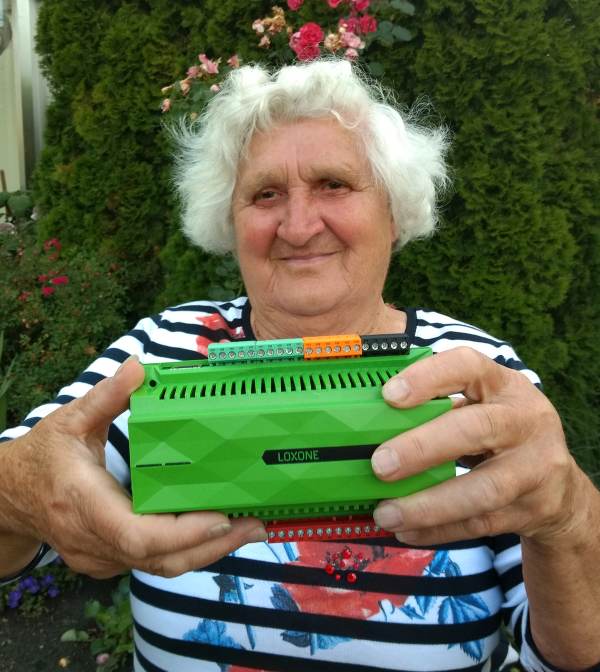Soil moisture measurement with Loxone and SMT100
This is my first step in building an automated irrigation system with the Loxone Miniserver. Loxone is a manufacturer of smart home systems and became quite popular due to its medium price tag and good support of interfaces. I decided to give it a try and chose the Loxone Miniserver and the corresponding Modbus extension. With the Modbus extension it is possible to add up to 32 Modbus devices. If this is not enough you can add more Modbus extensions Here is how the Loxone Miniserver looks like.
.
With Modbus RTU it is quite simple to add a SMT100 to the Loxone. The SMT100 is available as Modbus version (please mention this when ordering). The manufacturer TRUEBNER provides an application note and a Modbus test program. I configured the SMT100 as Modbus device with address 1. Here is the configuration required by the Loxone. Please first add the Modbus extension to the Miniserver and then connect the SMT100 to the Modbus extension. Do not forget to power the SMT100.
Step 1: Modbus Extension
Set Baudrate to 9600 and Parity to even
Step 2: Modbus Device
Set Modbus address
Step 3: Add Sensor settings for temperature
I/O address 0
Command 3 (read holding registers)
Data type 16 bit unsigned integer
Step 4: Add Sensor settings for moisture
I/O address 1
Command 3 (read holding registers)
Data type 16 bit unsigned integer
Use conversion formulas (math block formula)
moisture: 16 bit value /100
temperature: 16 bit value / 100 - 100
Use virtual status blocks to display moisture and temperature on the website
This is the final result

If anyone needs a more detailed explanation how to setup Loxone with the Modbus Extension please send me an email at maria.gardenergranny@gmail.com.
Of course it is not a requirement to use Modbus for the SMT100 with Loxone. There are two more options. First option: Use the SMT100 with analog voltage output. Second option: Use the SMT100 ASCII with an RS485 Extension. For me Modbus was the most convenient choice. I know Modbus from the beginng. I still remember the good old times back in 1979 when Modbus came on the market and I developed a Modbus controller for my sewing machine.